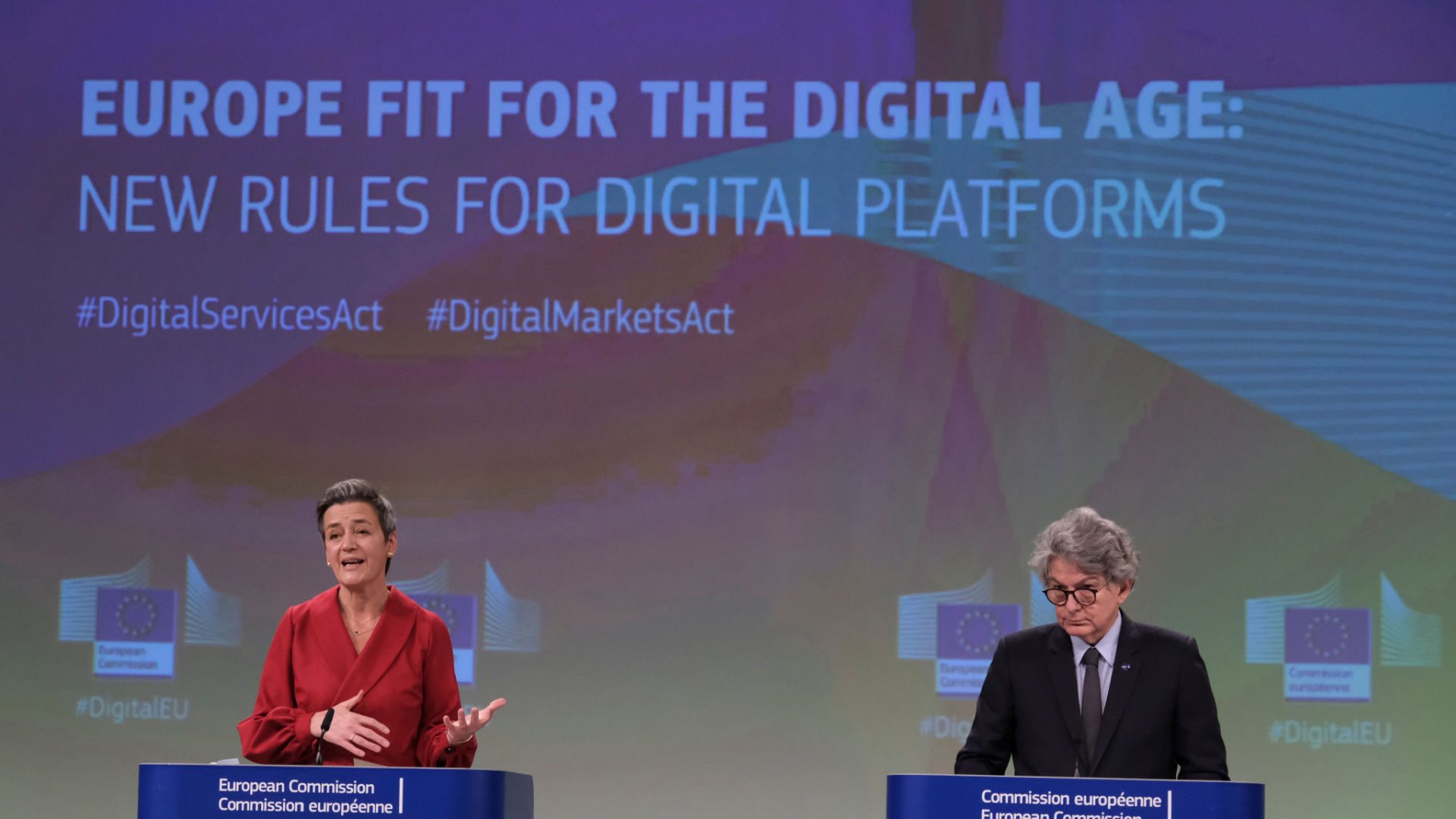On November 1, the European Union’s Digital Markets Act officially came into effect, starting a countdown to force Big Tech platforms to be more open and interoperable. The law will bring massive changes to what people and companies can do with their devices and apps.
According to a video released by the European Commission, “The Digital Market Act redresses the imbalance of power in the digital sector, ensuring that the market remains fair and open.” The video argues that a few large digital firms are currently “gatekeepers” who can set the rules of digital markets and can thus act unfairly.
Before tech companies have to comply with the Digital Market Act, the EU must first decide which companies are powerful enough to be classified as gatekeepers. Once this group of about twelve companies is announced in spring 2023, the named companies will have six months to comply with the new regulations.
New Rules & Regulations
The act’s ultimate goals are to allow smaller businesses and startups to develop and grow more easily and to give consumers more fair choices. To do so, the act will prevent big companies like Apple, Meta, and Amazon from unfairly pushing their own products and services in search results above those of other businesses.
Similarly, the Digital Market Act will allow users to download apps from the app store of their choice. As Gerard De Graaf, an EU official who helped pass the act, argued, “If you have an iPhone, you should be able to download apps not just from the App Store but from other app stores or from the Internet.”
The Digital Market Act will also offer users the ability to install a default search engine, browser, and voice assistant of their choice at the time of first use. This means that Chrome, for example, could be offered as the default search engine on an Apple device.

Global Implications
Even though the act will only be in effect in the European Union, some of the compliance details will be easier to implement globally. The act is thus expected to change how tech platforms serve people around the world.
Further proving the act’s effect on the rest of the world, a new office was established in San Francisco earlier this year, in part to explain the law’s consequences to the Big Tech companies in the area. According to De Graaf, the United States and the EU are motivated to find a way to address the microchip shortage and how governments can leverage the internet and technology.
This act follows suit with a push for technology companies to collaborate and standardize their products. For example, in October, the European Parliament’s Council of Ministers ratified the vote that mandates all new mobile phones, tablets, speakers, keyboards, and more will have to be equipped with a USB Type-C port by 2024. Notably, this forces Apple to comply and get rid of the company’s proprietary Lightning connector.
Matter, the new smart home connectivity standard, was also taken into effect in October. The standard promises to fix smart home interoperability by enabling different smart-home products and systems to all work with one another, regardless of their brand. Unlike the Digital Market Act, however, the driving force behind Matter was the companies, not the government.
For more technology news, check out the evolution of the cloud, information about the Matter Launch Event, how AI technology could help us talk to animals, and London’s Digital Art Week.
To find out more about the current state of the digital world and the cloud, tune in to Tomorrow’s World Today on the Science Channel at 8:30 am ET on Saturday, November 12, and Discovery at 6:30 am ET/PT on Sunday, November 13.




